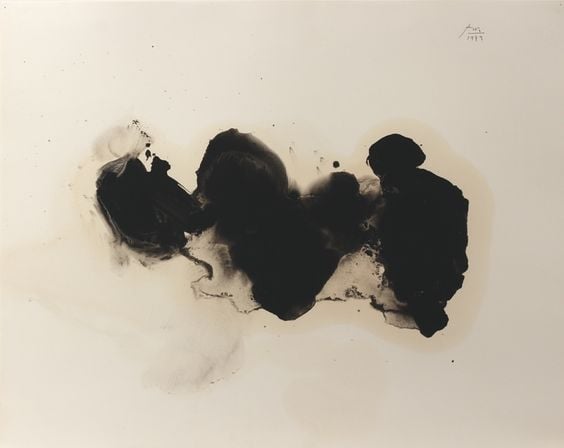
Image: via Pinterest.
Image: Via Barneby’s.co.uk
In a lawsuit that can only be described as highly unusual, Irish art dealer Oliver Sears has sued Sotheby’s auction house in US District Court, Southern District of New York, over a purported Robert Motherwell painting consigned for auction this past fall that was withdrawn before the November sale, since it was believed to be a fake.
The case as laid out in the legal complaint is not entirely clear and often very confusing. But it appears that what Sears saw featured in the Sotheby’s catalogue titled Brushy Elegy, and dated 1979—a work he owns and has physical possession of in his native country of Ireland—was likely a copy. Sears’ attorney says he was alarmed not only by the fact of seeing what he believed was his painting for sale, but also by the far lower estimate of what he says his authentic Motherwell is worth.
Sears’s attorney, Wendy Lindstrom, explained to artnet News in a telephone interview that the reason why there are no facts in the complaint with respect to the consignment is because Sotheby’s “has failed to give us any information with respect to how this came to happen.”
The work no longer appears on Sotheby’s website after the withdrawal, though a link on online auction service Barneby’s, about the Sotheby’s sale is still live, and lists the low $100,000 estimate in British pounds (see above).
Fake Motherwell paintings were also a key source of contention in the forgery scandal at the heart of the recent Knoedler fraud case. In that case, the fake Motherwells were created by a Chinese forger in Queens and brought to market by Long Island dealer Glafira Rosales through Knoedler and other dealers.
Robert Motherwell, Brushy Elegy (1979)
Image: via Pinterest.
Sears says Sotheby’s estimate of $100,000 to $150,000—where he thinks the value should be more like $600,000, in effect “destroyed the market for this rare and unique painting.” Says Lindstrom: “Sotheby’s negligence and recklessness caused my client severe damage.”
Sotheby’s called the suit “baseless” and is seeking to dismiss it. John Cahill, the counsel for the auction house, told artnet News in a phone interview: “Sotheby’s properly withdrew an inauthentic version from the sale and had the right to do so. The suit is utterly baseless and should be dismissed. That’s what we’re planning to do. We didn’t do anything wrong. We don’t have a legal duty to everybody who has a Motherwell to put the prices they like on them.”
artnet News obtained a copy of the complaint, which was filed March 23 and first flagged by Josh Baer in his art world newsletter the Baer Faxt.
According to the claim, in October 2015, Sears notified Sotheby’s “of the unauthorized advertisement of [his] painting, Brushy Elegy, for sale at auction at the November Day Sale as Lot 152. Plaintiff never intended to offer Brushy Elegy for sale at auction and never consigned Brushy Elegy to the Defendant for such purposes. In fact, Plaintiff intended and did offer Brushy Elegy for private sale to the Bernard Jacobson Gallery knowing that he could achieved a higher sales price in a private sale.”
Sears’s claim continues that Sotheby’s “falsely indicated” the estimate and further “knew that this valuation was wildly inaccurate as early as 2012,” when Sears himself had sought an estimate from Sotheby’s.
Sears said the Jacobson gallery indicated in correspondence that “but for Sotheby’s valuation, $650,000 would be an appropriate retail price for Brushy Elegy,” a value he says was backed by a certified appraiser.
Sotheby’s withdrew the work on November 2, 2015. Sears says the previous catalogue entry with estimate essentially “burned” or “critically devalued” his work and that it will be associated with his painting “in perpetuity.”
He is seeking damages of “at least $650,000 plus attorney’s fees.”
In a recent interview in the Irish Times, in which Sears described his house and art collection, he said: “I have an Elegy, by Robert Motherwell. It’s a classic work made in response to the Spanish Civil War that attempts to represent the shape of grief: one of those rare pieces that is complete, powerful and restrained.”